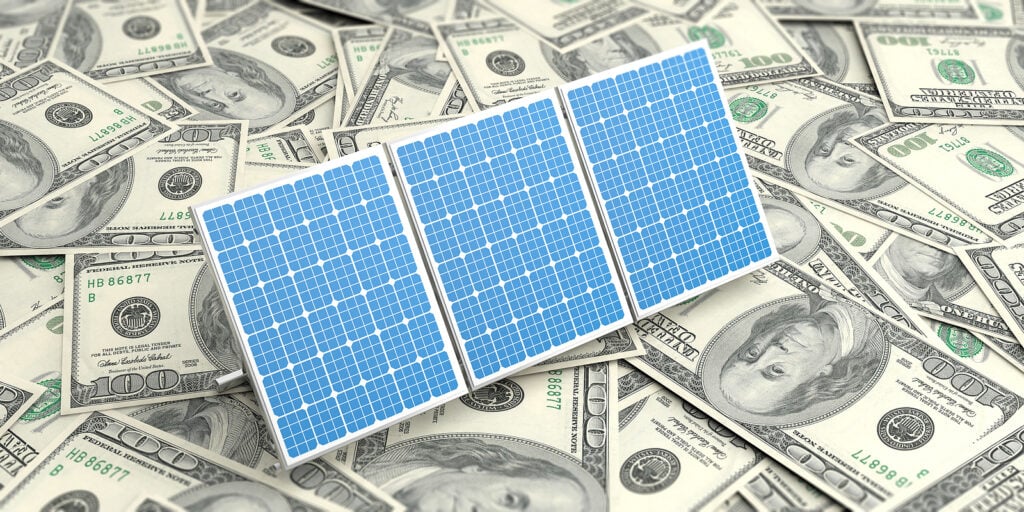Wake Up Biden: Need to Change Your Anti-American Energy Policies
A survey conducted by Morning Consult found 90 percent of U.S. voters favor domestic energy development over foreign imports. In addition, more than 80 percent of respondents said they believed domestic oil and natural gas production would boost energy security for the United States and its allies, reduce energy costs, and help preserve U.S. leadership in times of uncertainty. Another survey conducted by the Pew Center found that 67 percent of Americans want a mix of fossil fuel and renewable energy resources. Americans generally do not want a complete break with fossil fuels and foresee unexpected problems in a major transition to renewable energy. That is despite 69 percent of Americans favoring the United States taking steps to become carbon neutral by 2050, a key component of President Joe Biden’s climate and energy policy. Economic concerns are forefront in the minds of Americans when asked about what a transition away from fossil fuels would mean for them.
Biden and his cohorts want to blame rising oil and gasoline prices on the Russian invasion of Ukraine. While some suppliers are no longer buying oil from Russia, reducing supply and causing the most recent increase in prices, it is Biden’s anti-oil and gas policies that have caused the initial shortage of oil supplies and the price increases last year when gasoline prices increased by $1 over the course of Biden’s first year in office. On his first days in office, he canceled the Keystone XL pipeline, which would provide oil from our Canadian neighbor—an oil grade that U.S. refineries need, and placed a ban on leasing oil and gas on federal lands while he determined how much to increase fees on oil and gas drilling. His administration has also banned oil production in the Arctic National Wildlife Refuge and the Naval Petroleum Reserve—Alaska. He has placed restrictions on the Federal Energy Regulatory Commission that will probably kill their approval of most new natural gas pipelines and he has asked banks to not support future oil and gas projects. Markets look for signals, and all the signals coming from the Biden administration about increasing domestic production have been flashing red lights.
Biden now claims he is doing all he can to lower the rising gasoline and oil prices, but all he has done is beg OPEC+ (“+” stands for Russia) for more oil production and asked our allies to release oil from their strategic petroleum reserves. But the release of oil from the Strategic Petroleum Reserves is just a drop in the bucket of the oil that is needed and does nothing to increase supplies meaningfully, and is thus of little benefit to reducing prices. Now, his administration is looking to get oil from Venezuela—a country where sanctions have been applied for years and socialist government policies have destroyed oil producing capabilities. Biden’s actions result in energy being harder to produce and more challenging to discover. Therefore, gasoline and home heating prices are higher than they have been in quite some time. But Biden has not made the connection between his disastrous policies and the rise of energy prices. Instead, he asked the Federal Trade Commission to investigate whether or not energy companies are gouging their prices to squeeze more money out of consumers. But, that was before the Russian invasion of Ukraine. Now, he has another scapegoat on which to blame high and rising prices.
On Sunday, oil price surged to $139 a barrel with the market reacting to supply disruptions stemming from Russia’s ongoing invasion of Ukraine and the possibility of a ban on Russian oil and natural gas. West Texas Intermediate crude futures, the U.S. oil benchmark, at one point spiked to $130.50 Sunday evening—its highest level since July 2008. The U.S. and its allies are considering banning Russian oil and natural gas imports, Secretary of State Antony Blinken said in an interview with CNN’s “State of the Union” on Sunday. The U.S. average for a gallon of gas topped $4 on Sunday, according to AAA. The cost of oil accounts for more than 50 percent of the cost of gasoline. The last time gasoline prices were this high was in 2008 when gasoline rose to a record $4.11 a gallon, which equates to about $5.20 a barrel today adjusted for inflation. High gas prices are helping to feed inflation, which reached a 40-year high in January.
These prices are moving in the direction that President Biden and his administration apparently want. According to The Last Refuge:
“During a U.S. Department of Energy roundtable, on February 28, 2022, launching the Biden administration’s Better Climate Challenge initiative, Energy Secretary Jennifer Granholm explained the core of the Biden energy policy. Underneath all the blocks to oil and gas development, is the larger objective to transition away from fossil fuels to Green New Deal climate change initiatives. $10/gal gasoline is a feature, it is part of the plan. Rising electricity rates and massive increases in home heating and cooling costs are part of the plan. The downstream impacts of inflation inside the entire U.S. economy are structural issues to be managed. The financial pain to the U.S. citizen is the biggest problem they need to manage. Within this ‘transition’ process, the administration needs something they can point to as a false justification. That’s where the Ukraine-Russia conflict serves their current interests. The Biden team need Americans to blame something or someone else, as they execute this policy. First it was COVID, now it’s Vladimir Putin. All of this is being done on purpose.”
Were it not for Biden’s plan to rid the United States of fossil fuels by escalating prices out of sight, the United States would be already producing more oil and finding more oil for development. The United States has 285 years of technically recoverable oil, and more oil would be found if oil companies were allowed to open new leases and explore for it. The United States would also be on its way to getting more oil from neighboring Canada if the Obama-Biden administration did not hold the Keystone XL pipeline hostage and the Biden-Harris administration did not cancel the permit for the pipeline to cross the U.S.-Canadian border. The permit for the Keystone XL pipeline was filed in 2008—plenty of time to have built it since it only took 3 to build the Trans Alaska Pipeline System, a larger and more challenging project.
Under the Trump administration, the United States became energy independent—a goal that U.S. governments wanted to reach for decades. The United States had become the world’s leading oil and natural gas producer, thanks to the American energy renaissance, and Americans were reaping its benefits from low gasoline prices, inexpensive natural gas home heating, and nearly flat electricity prices, even as the United States reduced its carbon dioxide emissions more than any other nation. But the Biden administration’s anti-oil and gas policies are making those realities go away as it transitions the U.S. economy to a net-zero carbon-based economy. The policies of the Biden administration and the Democrat-controlled Congress have increased energy prices and will continue to do so as more and more of these negative policies are implemented. Americans need to understand the dynamics involved with oil production and realize that Biden is not helping with his anti-oil and gas policies.
*This article was adapted from content originally published by the Institute for Energy Research.




